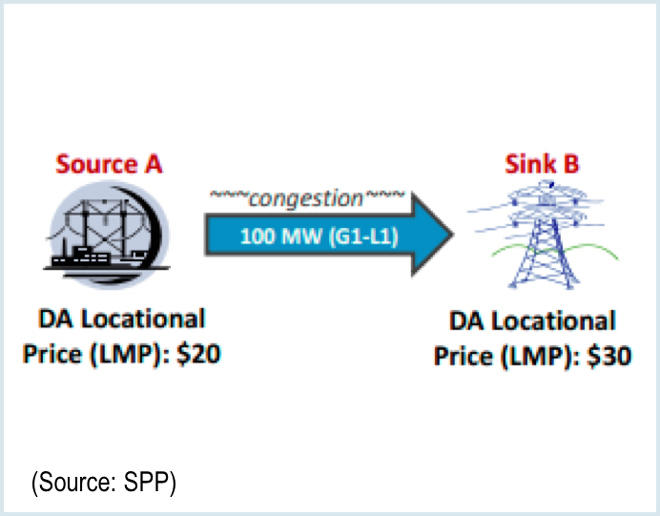By Tom Kleckner
The Federal Energy Regulatory Commission last week rejected multiple requests for rehearing of its October 2014 order finding fault with SPP’s interpretation of long-term congestion rights (LTCRs).

FERC did conditionally accept SPP’s January compliance filing, saying the RTO had partially complied with the October order (ER14-2553).
In the October order, FERC ruled that SPP’s response to Order 681 did not meet the order’s requirement that long-term transmission rights made feasible by transmission upgrades or expansions must be available to any party that pays for the improvements under prevailing cost-allocation methods.
The commission said SPP’s proposal did not grant LTCRs to “‘any party’ that funds upgrades,” but instead awarded transmission-service revenue credits, “which are only available to transmission service customers and are not based on the value of congestion revenue.”
FERC also found SPP’s filing did not fully comply with Order 681’s requirement that load-serving entities have priority over non-LSEs in the allocation of long-term firm transmission rights supported by existing capacity.
No Opportunity for Profit
In denying SPP’s request for rehearing, the commission said it disagreed with the RTO’s contention that Attachment Z2 credits are “reasonable equivalents to LTCRs for financial entities.”
“SPP’s Attachment Z2 crediting process awards transmission service revenue credits up to the cost of the facility, but the value of a LTCR could exceed the cost of the facility,” FERC said. “Z2 credits up to the cost of the facility may be a reasonable incentive for some market participants to sponsor upgrades … However, the Attachment Z2 credits would not serve as an incentive for financial entities that fund transmission projects to sponsor any upgrades because the most they could receive is their initial investment with no opportunity to make a profit.”
The commission also denied SPP and KCP&L’s claims that the October 2014 order questioned the justness and reasonableness of Attachment Z2. “SPP’s decision to use tariff language that already existed in a prior context” to satisfy Order 681’s requirements, FERC said, did not absolve the commission of its responsibility to determine whether the proposed language is just and reasonable.
FERC also denied a rehearing request by the City of Independence, Kansas Power Pool, Missouri Joint Municipal Electric Utility Commission, Missouri River Energy Services and West Texas Municipal Power Agency (filing as TDU Intervenors).
The group expressed concern that adoption of a nomination process will not ensure LSEs obtain sufficient LTCRs. The commission said that SPP’s use of a nomination process before the simultaneous feasibility test “addresses TDU Intervenors’ concerns and render their proposed revisions unnecessary.”
The commission added that the intervenors failed to demonstrate how SPP’s process would result in their being unable to nominate LTCRs at a level equal to their “reasonable needs.”
Compliance Filing
Boston Energy Trading and Marketing protested SPP’s proposal to provide incremental LTCRs, in lieu of revenue credits, to entities that fund upgrades. SPP proposed network upgrades costs of $5 million or more be compensated with candidate incremental LTCRs, if elected, but Boston Energy said that inclusion is contrary to Order 681 and more restrictive than other ISOs and RTOs.
FERC conditionally accepted SPP’s proposal for awarding incremental LTCRs but required it to remove the $5 million threshold.
FERC also directed SPP to separate the provision of incremental LTCRs from the proposed nomination process and to establish a new process providing incremental LTCRs when the sponsored upgrade goes into service. The commission also asked SPP to inform FERC whether the LTCRs’ initial allocation will be implemented in the 2016 ARR/TCR year, and to explain how its process will treat the provision of LTCRs and incremental LTCRs for network upgrades funded through a combination of rolled-in transmission rates and directly assigned charges.
The American Wind Energy Association and the Wind Coalition had requested clarification on how the LTCR process will affect future transmission in the RTO’s planning and interconnection processes. They also requested clarification on how incremental LTCRs resulting from transmission capacity created by upgrade sponsors would impact transmission service customers.
FERC responded by saying SPP’s compliance filing showed its transmission-planning process “ensures the continued long-term feasibility of awarded LTCRs and incremental LTCRs, and therefore has complied with the transmission planning and expansion requirements of Order 681.”



